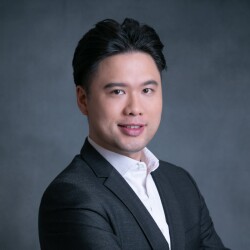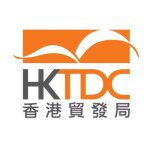Entering the world of intellectual property (IP) can be both daunting and necessary for start-ups. When the venture starts as a postgraduate engineering project, the learning curve appears even steeper. However, a group of students from The University of Hong Kong embraced this challenge and turned it into a business: Invisible Tech. Their mission is to improve quality of life while adhering to ESG principles, with innovations spanning smart health, smart living, and retail, particularly in audio and internet of things integration.
Patrick Lee, a co-founder of Invisible Tech, has shared insights into the company’s journey during an interview with Managing IP and explained how winning the IPHatch Hong Kong competition in 2021 has played a key role in its growth. The competition supports innovative start-ups by connecting them with established multinationals that have extensive patent portfolios.
From university project to start-up: the birth of Invisible Tech
Invisible Tech’s story began with a group of students at The University of Hong Kong who embarked on a project for their master’s degree in engineering. The result? A wine box speaker that combined an upcycled wine box with innovative audio technology to deliver high-quality sound. This prototype led the team to enter the IPHatch programme and, as a result, benefit from a collaboration with Panasonic, turning their university project into a viable business concept.
“We were master’s students and needed a project to graduate,” Lee explains. “Most students do a research project, but we wanted to adopt the engineering and technology knowledge we learnt from the school and make real products. So we developed the wine box speaker.”
The product received an unexpected and overwhelmingly positive response from the university and industry. The wine box speaker caught the attention of Panasonic and led to further collaborations.
Expanding the portfolio: smart products for the modern world
Invisible Tech has significantly expanded its portfolio since its inception. One of its signature products is a smart pillow, developed in collaboration with Panasonic. The pillow uses AI to monitor sleep patterns and adjust its functions to help with issues such as insomnia. A separate product line integrates audio technology into smart furniture to create stress-reducing environments in homes and offices.
Another significant project is the smart kiosk, which helps retailers by providing product information and collecting customer interaction data. “The kiosk, which we developed with Watson Group [the health and beauty retailer], displays product information when a customer picks up an item,” Lee explains. “For example, when a customer picks up a bottle of red wine, the kiosk introduces the wine, offering details like its year and providing a video.”
The kiosk also records the “touching rate” of products, helping retailers to understand customer preferences and plan accordingly.
Embracing the IPHatch programme: unlocking opportunities
Patents aren’t just about protecting our technology – they also generate revenue

The IPHatch programme was pivotal to Invisible Tech’s development. Lee believes that winning the competition not only built trust but also deepened the company’s understanding of IP and how to leverage patents for growth. “IPHatch isn’t just about patents,” Lee says. “As a start-up, you need to gain your customers’ trust. With the IPHatch win, we were able to collaborate with Panasonic and the Hong Kong Trade Development Council [HKTDC], which added credibility to our business.
“A patent helps us show our customers what differentiates us from competitors. It’s incredibly important for us. For example, we licensed a 3D spatial audio effect patent from the City University of Hong Kong [CityU], which helped improve the stereo effect of our wine box speaker.”
Eventually, with this collaboration, Invisible Tech has also become an angel fund start-up under CityU's HK Tech 300 programme.
Lee adds that the IPHatch competition helped the Invisible Tech team to learn how to write and license patents, which are potentially valuable skills for start-ups to acquire as they seek to expand.
Scaling up: the future of Invisible Tech
Invisible Tech’s global ambitions are taking shape. The company recently established a UK-based subsidiary, Doolab, to take its smart furniture line into Europe. “We’re focusing on three core projects: smart pillows, smart furniture, and smart kiosks,” Lee says. “Of these, smart furniture has the greatest potential for scalability. Doolab will brand our audio furniture as a European product, combining UK design with technology from Japan and Hong Kong.”
The company’s connections through IPHatch, particularly with Panasonic, have been instrumental in driving innovation and market expansion. Indeed, Lee credits the support from Panasonic and the HKTDC for helping Invisible Tech to scale internationally. “Through these partnerships, we’ve had the opportunity to meet with the UK’s Department for Business and Trade, which has connected us with London & Partners, a government agency that helps businesses invest in London,” Lee says.
Expanding horizons through patents
Invisible Tech’s commitment to IP development has been central to its business strategy, and has helped the company to win more than 20 awards. However, the journey is not over. Invisible Tech is planning to extend its IP portfolio to increase its company value, attract investors, and enhance its technology, with an eye on international markets.
“We’ve adopted a new business model,” Lee says. “Rather than producing products locally and shipping them overseas, we now license our patents to international partners. These partners handle local production, while we provide the technical expertise and materials.”
This approach allows the company to expand without being bound by traditional production constraints. “Our wine box speaker patent is just one example,” Lee explains. “We’re working on a licensing package that we can sell to wine sellers or lifestyle product manufacturers. Patents aren’t just about protecting our technology – they also generate revenue. This is one [way] we are thinking of how to scale up, but stay tuned.”
About IPHatch
IPHatch is an open innovation challenge and programme pioneered by Piece Future, an Asian-headquartered private IP bank located in Singapore that connects IP-rich multinational corporations, universities, and start-ups with valuable patent assets. Winners gain access to cutting-edge patents from leading corporations and academic institutions, providing a strong foundation for accelerated innovation. The programme is currently active in 10 locations – including Japan, Hong Kong, and other Asian economies – and has successfully matched and nurtured more than 70 start-ups, driving impactful growth and fostering transformative solutions globally.
About the Business of IP Asia Forum
The annual Business of IP Asia Forum brings together worldwide IP owners, users, investors, and business leaders to discuss the latest developments in the IP world, and explore business collaboration opportunities. Under the theme of “Reimagining IP for Impact and Growth”, the 14th edition of the BIP Asia Forum was held on December 5–6 2024.
More than 3,000 participants from around the world attended the Forum, and explored the immense potential of IP in nurturing innovation and entrepreneurship, and driving impactful economic and social development on a global scale.
Participants gained fruitful insight from speakers from Hong Kong Disneyland Resort, Peninsula Merchandising, Xiaomi, and Kakao Entertainment on how to leverage IP for business development.
Another main series, the Global Tech Summit, explored the impact of AI on various industries, and provided practical tips for start-ups. An exhibition section named Innovation and IP Market, with “Smart City Innovation” as its theme, also showcased various projects from R&D centres, universities, and IP service providers.
The 15th edition of the Forum is expected to take place on December 4–5 2025.












